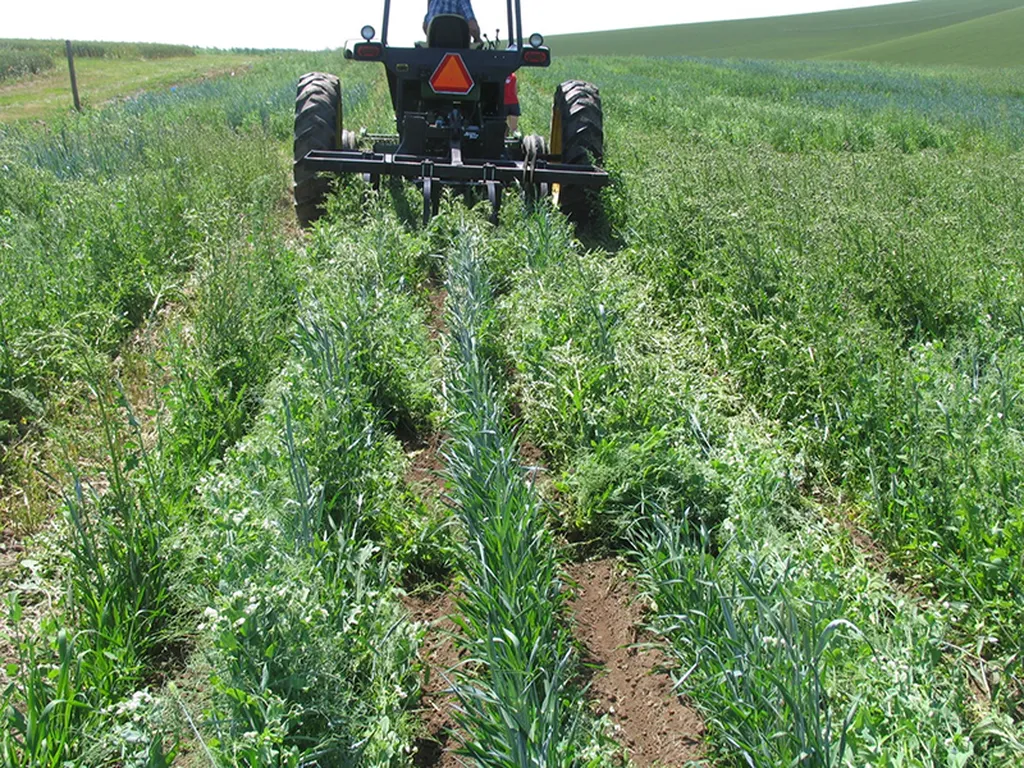In the heart of Saudi Arabia’s Qassim region, a groundbreaking study led by Nasser S. Al-Ghumaiz from Qassim University is reshaping our understanding of wheat cultivation under organic and conventional farming systems. The research, published in the esteemed journal *Frontiers in Plant Science* (which translates to “Frontiers in Plant Science” in English), offers a compelling narrative of balancing yield and stability in wheat production, with significant implications for the agricultural sector.
Al-Ghumaiz and his team evaluated seven elite wheat genotypes over five years, comparing their performance under organic and conventional fertilization conditions. The study employed advanced statistical tools, the AMMI model and GGE biplot analysis, to dissect the complex interactions between genotypes and environments. “Our goal was to identify wheat genotypes that not only deliver high yields but also exhibit stability across different farming systems,” Al-Ghumaiz explained.
The findings revealed that genotype IC8 stood out with the highest mean yield of 1.868 tonnes per hectare and the lowest AMMI stability value, indicating broad adaptability, particularly under organic conditions. “IC8’s performance suggests it could be a game-changer for farmers looking to transition to more sustainable practices without compromising on yield,” Al-Ghumaiz noted.
In contrast, genotypes like Sids_12 and LOCAL showed significant instability and specific adaptation, highlighting the importance of tailored breeding strategies. The GGE biplot analysis further confirmed IC8’s stable performance while identifying other genotypes, such as P5 and IC17, as particularly responsive under conventional fertilization.
The commercial implications of this research are profound. For the agricultural sector, the ability to select wheat genotypes that balance high yield and stability can enhance crop production sustainability. This is particularly relevant as the global push towards organic and sustainable farming practices gains momentum. “Our findings provide a robust basis for selecting wheat genotypes that can thrive in both organic and conventional systems, offering farmers a versatile toolkit for sustainable crop production,” Al-Ghumaiz added.
The study’s insights could also influence breeding programs, encouraging the development of genotypes that are not only high-yielding but also resilient to varying environmental conditions. This adaptability is crucial in the face of climate change, which is increasingly affecting agricultural productivity.
As the world grapples with the challenges of feeding a growing population sustainably, research like Al-Ghumaiz’s offers a beacon of hope. By leveraging advanced statistical models and genetic diversity, the agricultural sector can make significant strides towards sustainable and productive farming practices. The study’s publication in *Frontiers in Plant Science* underscores its relevance and potential impact on global agricultural research and practice.
In the quest for sustainable agriculture, every breakthrough brings us one step closer to a future where high yields and environmental stewardship go hand in hand. Al-Ghumaiz’s research is a testament to the power of innovation in shaping the future of farming.

